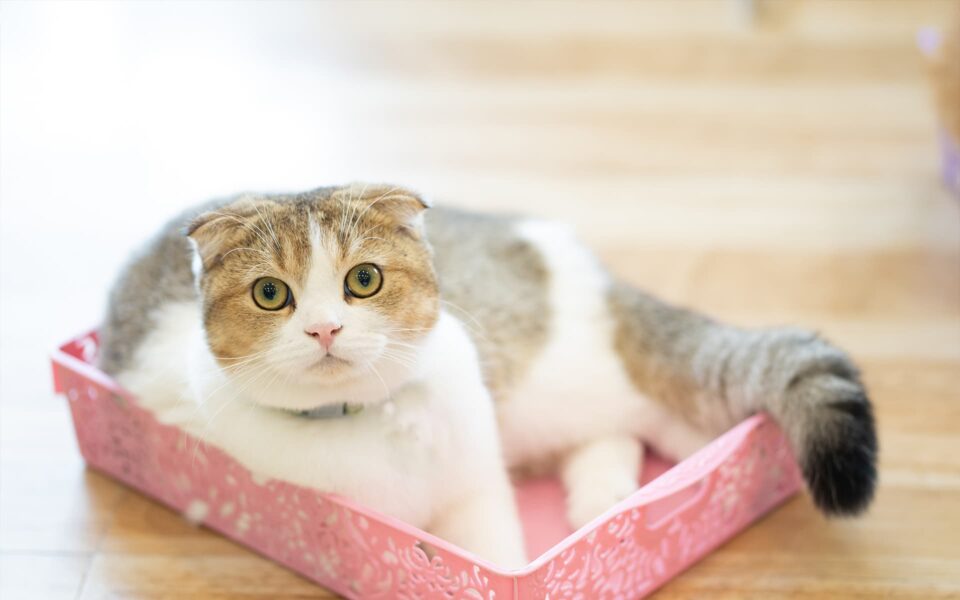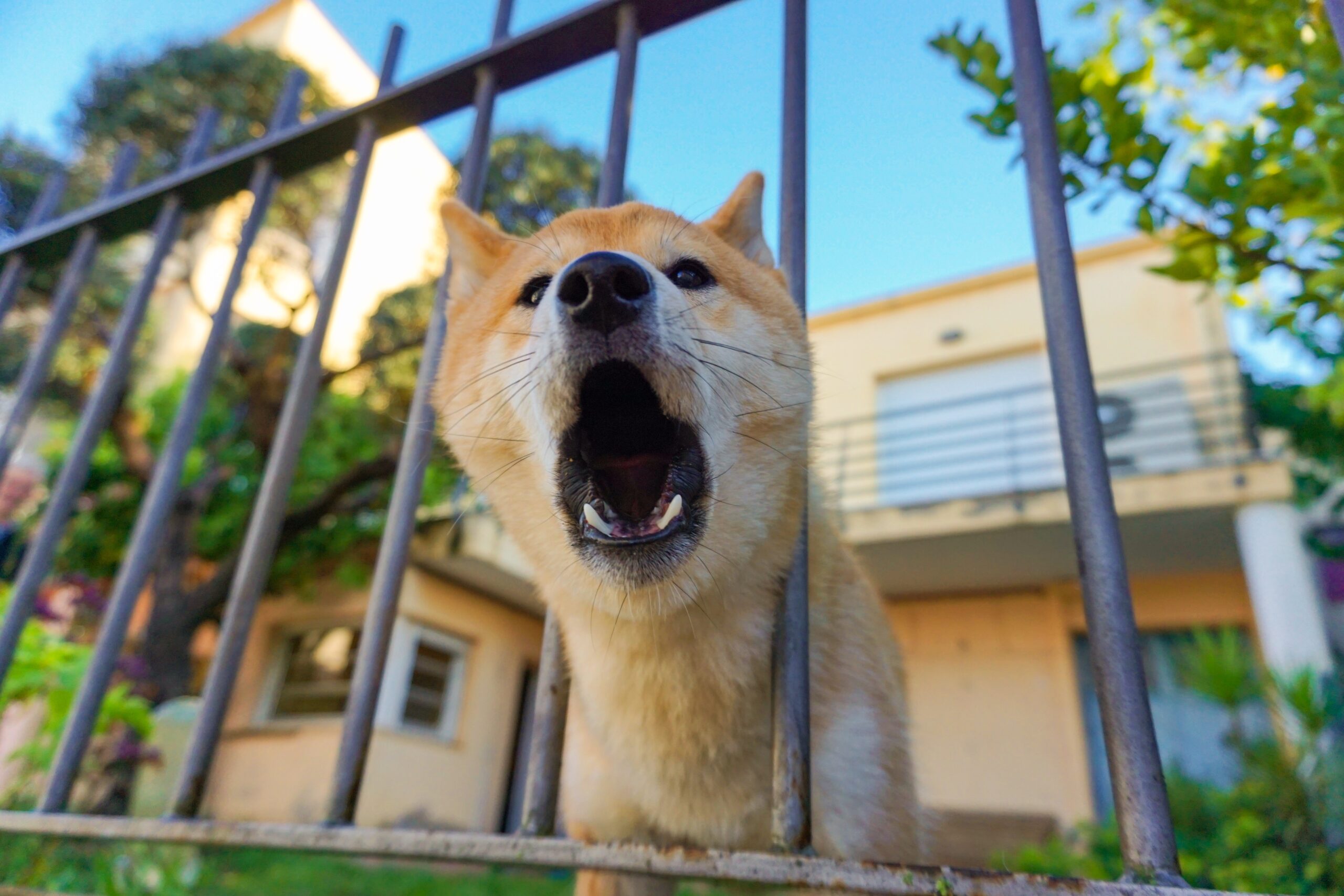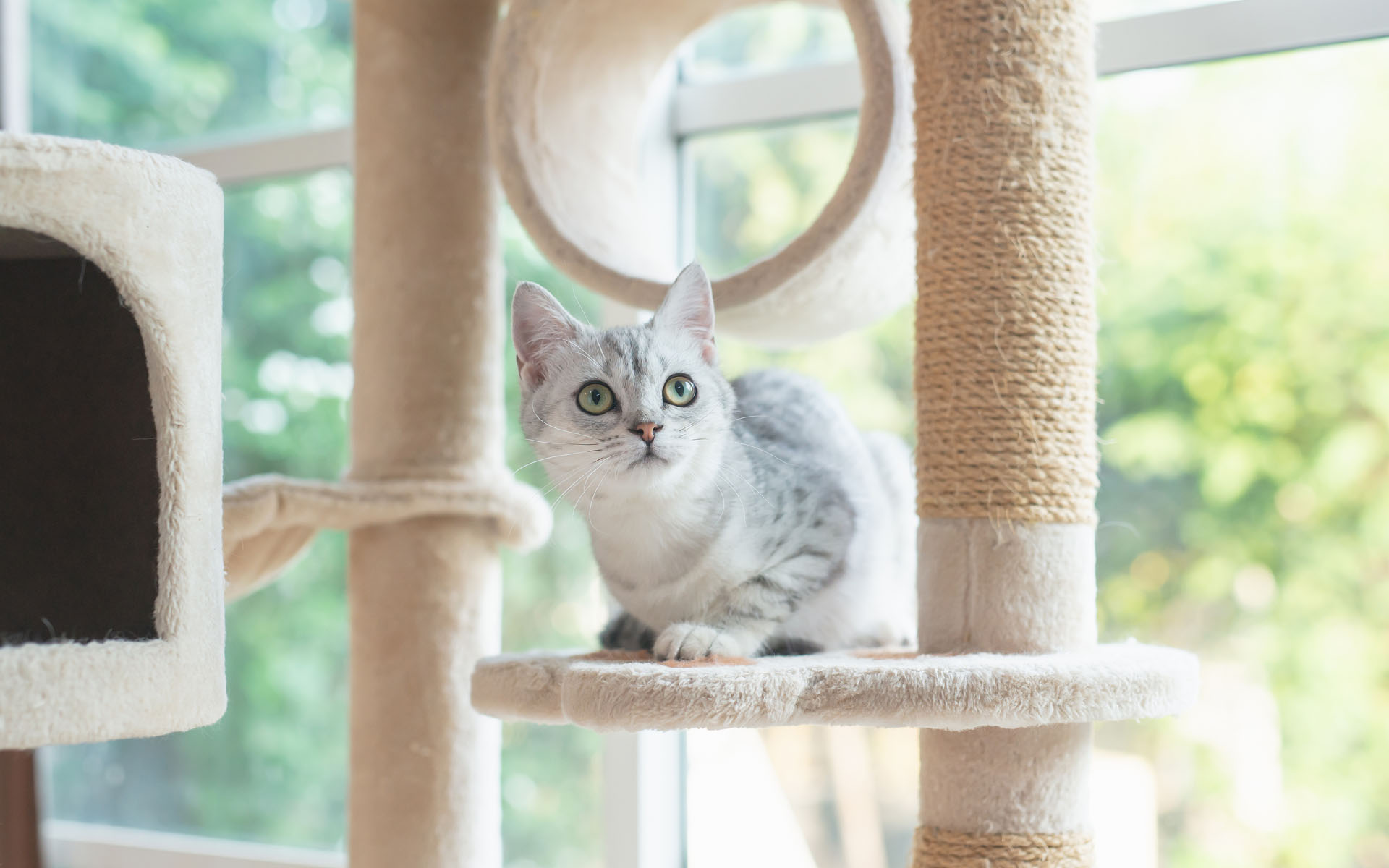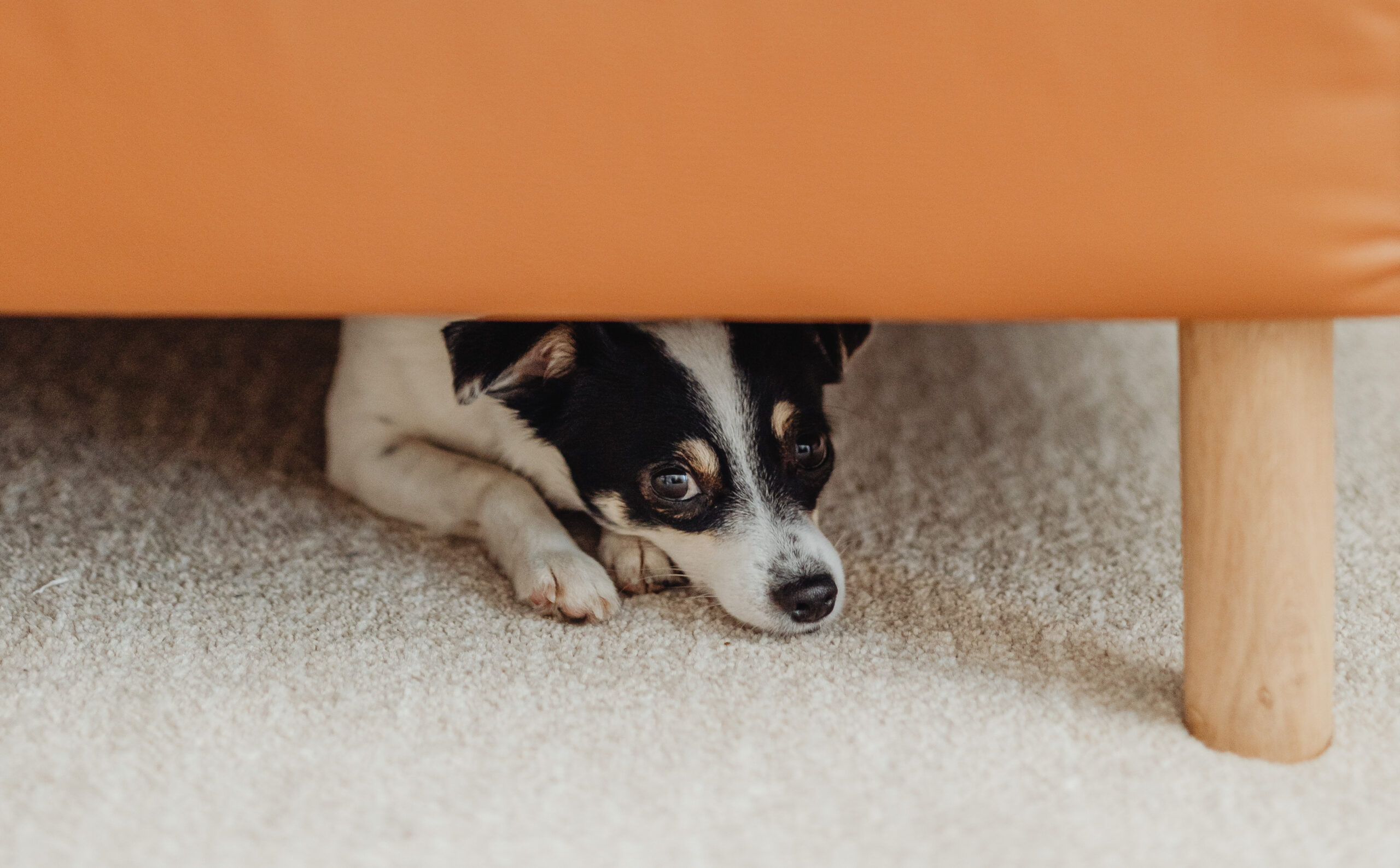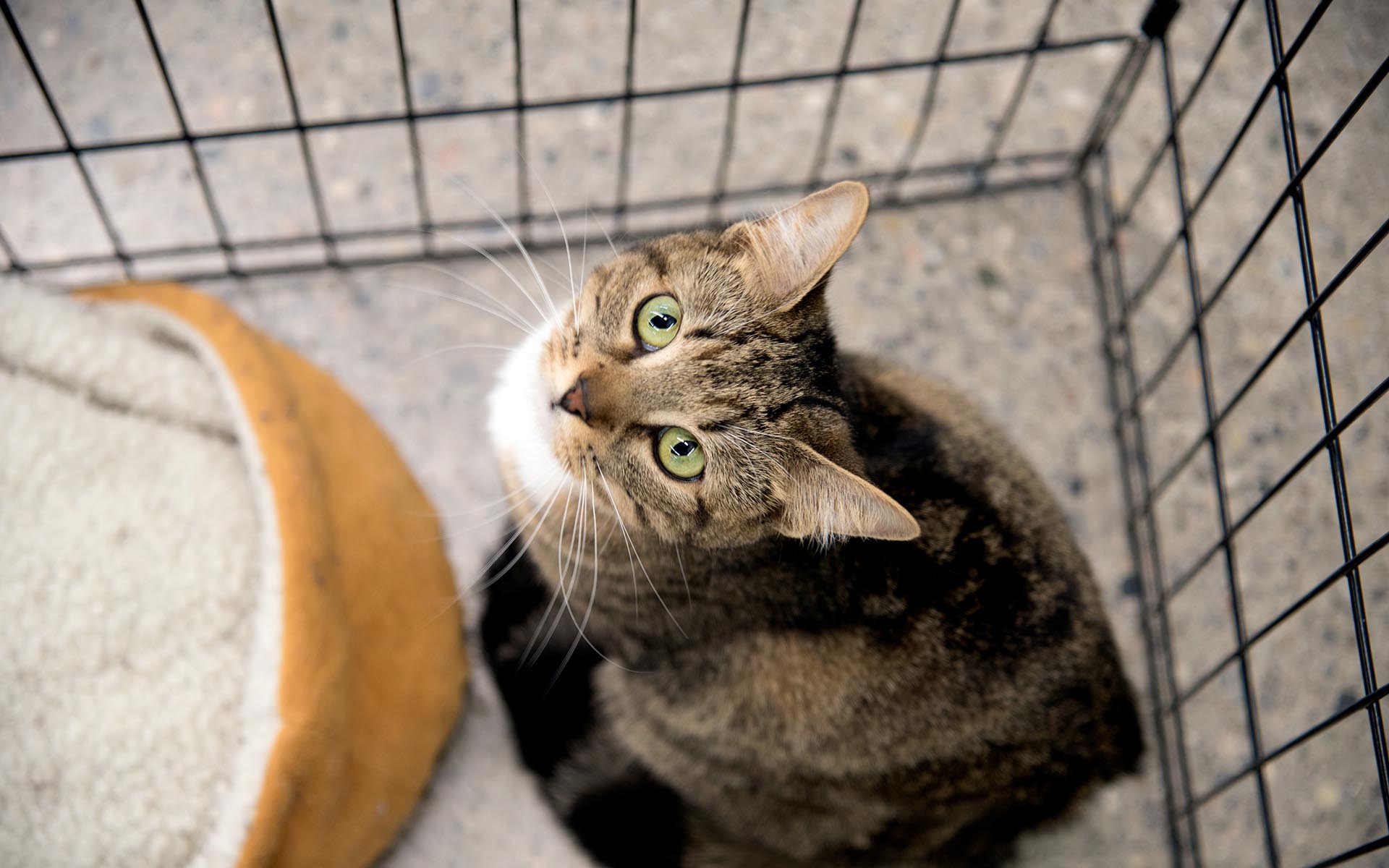Like many humans, cats can experience stress when their routine or environment is disrupted. This can be due to big events — such as moving to a new home — or seemingly minor changes, such as leaving on vacation for a few days. Here are a few signs of anxiety to watch for in your pets to ensure their well-being.
Signs of anxiety in cats
Instead of using words, cats express their distress through various physical signs or unusual behaviours.
- Your cat does its business outside the litter box: Cats may be trying to mark their territory, but could also be trying to express displeasure.
- Your cat washes itself excessively: Cats often wash very meticulously, but when they lick themselves so much that the skin is raw or they lose patches of fur, this is a serious sign of stress.
- Your cat meows more than usual: It is normal for cats to want to “talk” to their owners, but long plaintive mewling or insistent yowls can be a cry for help.
- Your cat hides more often than usual: Even though most cats are rather independent, rare are those that always run away from their owners. If you cat is constantly hiding, it may feel unsafe or be sick.
- Your cat demands constant attention: On the contrary, cats that feel ignored or abandoned can follow their owners around from room to room and constantly try to draw their attention.
- Your cat is eating less (or more) than before: If your cat seems to have lost its appetite — or outright refuses to touch its food— this can be a sign of stress. Don’t wait for your cat to “be hungry enough to eat on its own”: for some animals, loss of weight and energy can initiate a vicious cycle of hunger and lethargy. On the other hand, cats that seem constantly hungry may be lacking stimulation, with food becoming their only interest.
- Your cat is sleeping more than usual: It is not out of the ordinary for cats to sleep up to 20 hours a day. But if this is not usually the case for your pet, and if its sleeping habits seem to have changed drastically or it spends long hours completely inactive, this can be a sign of boredom or anxiety.
- Your cat becomes aggressive: Whether towards humans or other animals, cats that are prone to fighting, clawing or biting may be trying to defend themselves because they feel threatened.
An anxious cat may be hiding other health problems
Many signs of anxiety can be symptoms of various diseases. As a precaution, if your cat is exhibiting unusual behaviour, it is better to schedule a visit to the veterinarian to ensure that there isn’t a more serious health problem.

